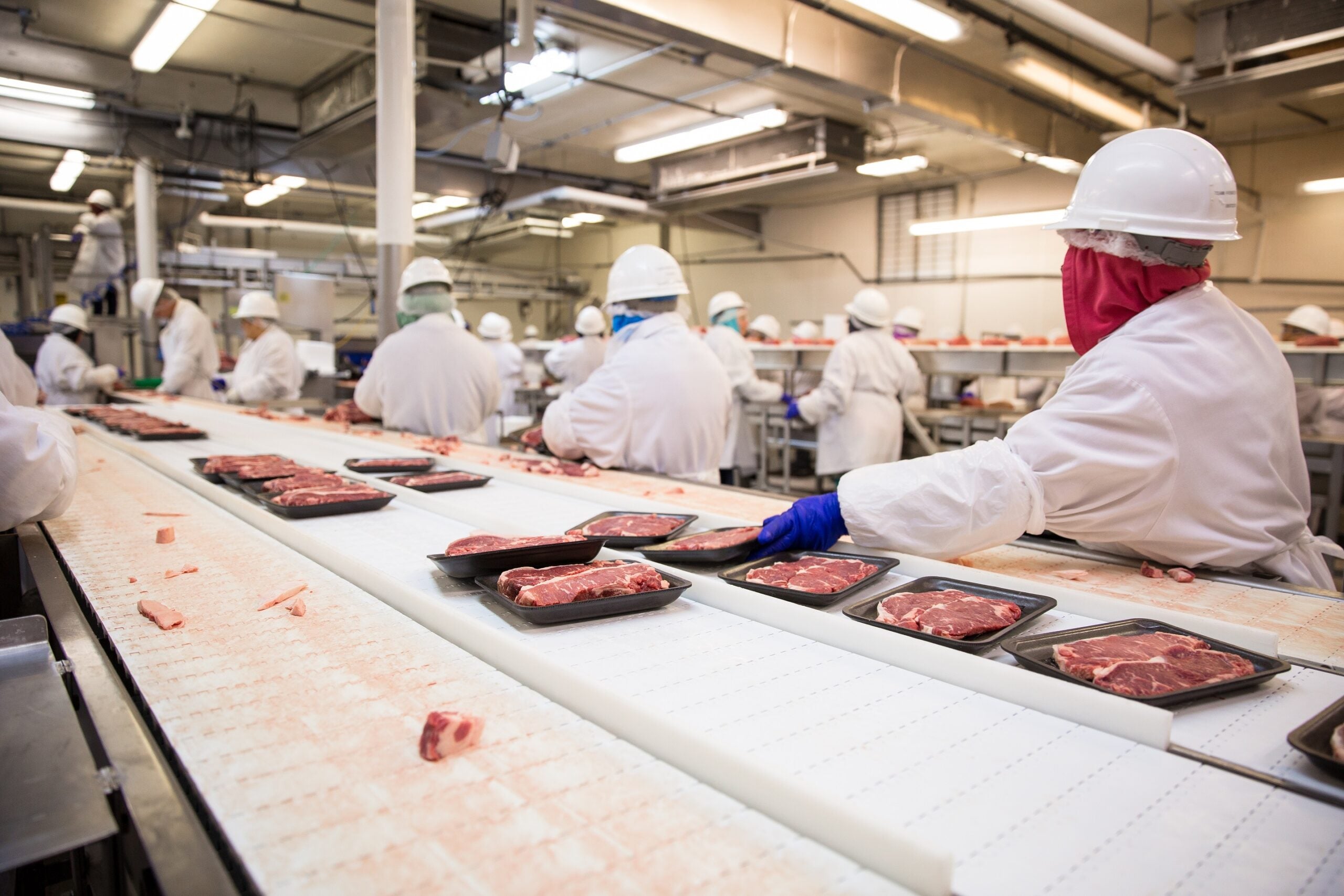
The number of US meat-factory workers who contracted coronavirus during the first year of the outbreak was almost triple previous estimates of 22,700.
A report from the House Select Subcommittee revealed “at least” 59,000 staff were infected in the initial 12 months after the virus was first identified in China at the end of December 2019, according to documents obtained from five of the largest meat processors following the previous review in February.

Discover B2B Marketing That Performs
Combine business intelligence and editorial excellence to reach engaged professionals across 36 leading media platforms.
Chaired by Republican James Clyburn it said the US division of Brazil’s JBS, Tyson Foods, Smithfield Foods, Cargill’s meat unit and National Beef Packing Co., owned by Marfrig Global Foods in Brazil, accounted for 80% of the local beef market and 60% for pork.
“At least” 269 of the 59,000 workers died from the virus, the report issued yesterday (27 October) noted, adding “that many meatpacking company executives, when faced with staggeringly high numbers of infections among their workers, prioritised profits and production over worker safety, continuing to employ practices that led to crowded facilities in which the virus spread easily”.
A hearing to review the findings was also taking place yesterday as the number of deaths was said to be almost three times higher than the previous figures compiled by the Food and Environment Reporting Network (FERN).
“The coronavirus pandemic exacerbated the already hazardous working conditions within some of the nation’s meatpacking plants, forcing workers to risk their personal health and safety – and that of their families and communities – as they worked in crowded conditions to try to keep America fed,” the Subcommittee reported.

US Tariffs are shifting - will you react or anticipate?
Don’t let policy changes catch you off guard. Stay proactive with real-time data and expert analysis.
By GlobalDataThe number of infections and deaths at the five companies’ facilities could also be higher as some of the data obtained by the Subcommittee excluded cases confirmed by offsite testing or self-reported cases by employees.
Certain meatpacking plants were singled out for “particularly high rates” of infections. The Hyrum, Utah facility owned by JBS where about 54% of the workforce contracted the virus between March 2020 and February 2021, and Tyson’s Amarillo plant in Texas with a rate of 49.8% over the same period.
National Beef’s site in Tama, Iowa, was also cited with 44.2% infections among the workforce between April 2020 and February the following year.
Former president Donald Trump did not escape criticism in the Subcommittee report, which said he “failed to provide the guidance and oversight needed to mitigate the spread of the coronavirus”.
“Despite repeated calls from labour groups, Democratic lawmakers, and experts in infectious disease and workplace safety, the Department of Labor failed to protect meatpacking workers from harm by refusing to issue an Emergency Temporary Standard (ETS) when the pandemic was ravaging meatpacking facilities,” it noted.
“OSHA [Occupational Safety and Health Administration] informed the Select Subcommittee that the Trump Administration made a ‘political decision’ not to issue an ETS, leaving staff without an enforceable regulatory standard that would require employers to take specific steps to protect meatpacking workers.”





